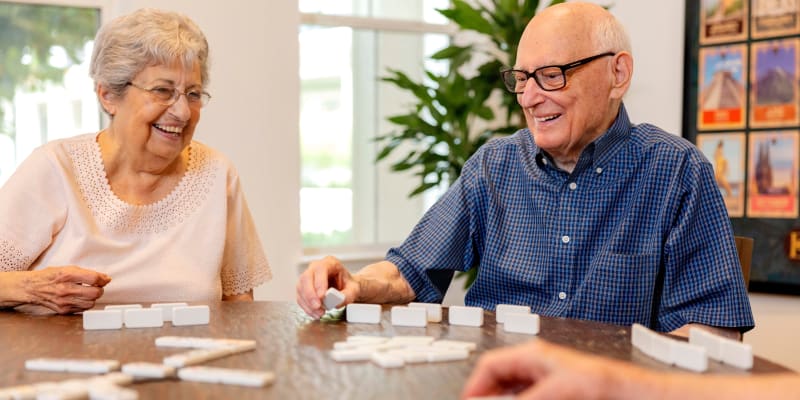For someone living with dementia or memory loss, everyday tasks can feel overwhelming. That’s where routines come in. Routines provide structure and predictability, especially when activities are being performed consistently at the same time, because they become ingrained in memory, making them easier to recall and perform. Having a consistent daily schedule can help bring comfort, reduce confusion, and create a sense of rhythm and purpose. In this blog, we’ll explore why routines are so important and share practical tips for caregivers to help make daily activities more manageable and meaningful.
Why Routines Matter
Having a consistent routine helps create a sense of comfort and security, especially for seniors experiencing memory loss. Familiar routines, especially those that have been part of someone’s life for years, tap into long-standing habits and memories. This familiarity can help ease anxiety, reduce agitation, and make everyday tasks feel less daunting. Naturally, when daily life follows a predictable pattern, it supports a calmer and less stressful environment, which can be extremely beneficial for individuals with dementia.
Caregivers can also benefit from routines just as much as those they support. A clear, consistent schedule can make daily responsibilities more manageable. It also allows caregivers to gain a better understanding of the individual and can help them anticipate needs and plan more meaningful and engaging activities.
Creating a Personalized Routine
The key to a successful routine is personalization. Before putting together a daily schedule, take time to learn about the individual’s likes, dislikes, interests, and abilities. Everyone is different, so tailoring the routine to fit their unique needs makes it much more effective. Consider the following questions to help guide you:
What do they enjoy? Think about their favorite hobbies, foods, music, or pastimes. Gathering as much information as possible about what brings them joy will make it easier to plan activities that are both meaningful and engaging. Additionally, involve them in the planning process whenever possible. This will not only help create a routine that they prefer but also help them feel a greater sense of purpose and control.
When are they most alert? Pay attention to the times of day when they seem most energized. Planning tasks like bathing or doctor’s appointments during those peak times can make things go more smoothly. For example, if they’ve always preferred showering in the morning, sticking with that routine can feel familiar and comforting, which can help ease anxiety.
Are there times of day that are more difficult? If you notice a pattern of agitation or confusion at certain times, try building a calming routine around those moments. Tracking behaviors can help you identify triggers and make thoughtful adjustments.
Tips To Support a Routine
Creating a routine is only the first step, and helping someone follow it requires patience, flexibility, and respectful encouragement.
Use gentle reminders. Visual cues like daily schedules with photos or a whiteboard can be very effective. For instance, a picture of a toothbrush next to “7:30 AM” helps clarify and signal what comes next. Additionally, try to keep verbal prompts clear and simple. Short, easy-to-understand sentences work best, such as “It’s 7:00 PM. Time for dinner.”
Break tasks into small steps. Instead of giving multiple directions at once, guide them through each step of a task or activity.
Be flexible. Some days may not go as planned, and that’s okay. If a task becomes overwhelming, take a break or swap it for something else. Taking a moment to sit together, like listening to music or chatting, can make a big difference and help reset the situation.
Lead with empathy. Always approach interactions with kindness and patience. Focus on what they can do and offer gentle encouragement without pressure. It is also important to celebrate progress, even if the task isn’t completed perfectly. This helps build confidence and will hopefully encourage them to continue participating in activities.
Establishing and executing a new routine will not happen overnight. Be patient with the process and adapt as you go. With consistency and a touch of creativity, personalized routines can be made that may make all the difference.
At QSLM, we recognize the unique challenges that come with memory care. That’s why our Reunion Memory Care Program is thoughtfully designed to provide peace of mind through personalized routines and meaningful engagement, tailored to each resident’s individual needs.
If you would like to learn more about our Reunion Memory Care Program, please reach out to our team. We’re here to support you every step of the way.










